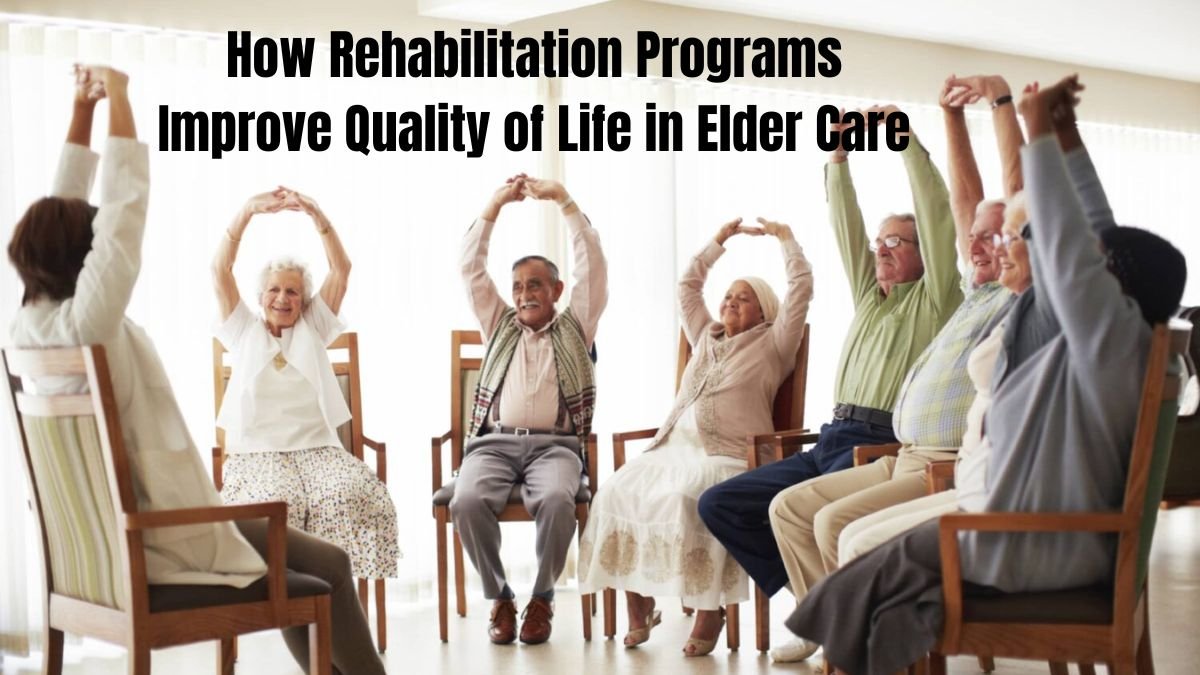In today’s modern lifestyle, the number of elderly people is constantly increasing. With aging comes increasing physical, mental, and social challenges. Maintaining quality of life becomes a major challenge, especially for frail and diseased elderly people. Rehabilitation programs have been developed in nursing homes and senior care centers to address this need. These programs not only help the elderly improve their physical health but also empower their mental and social lives.
The aim of rehabilitation programs is not only to treat illnesses, but also to ensure the elderly’s independence, dignity, and fulfillment of life.
Importance and Objectives of Rehabilitation
The elderly often face physical and mental impairments due to injuries, surgeries, or chronic illnesses. Rehabilitation programs are designed to address these impairments and enable them to lead healthy and active lives.
Main Objectives:
Improving Physical Ability: Increasing Joint and Muscle Strength
Mental Health: Reducing Depression, Anxiety, and Loneliness
Independence: Increasing Independence in Activities of Daily Living
Social Engagement: Making the Elderly Part of the Community
Physical Rehabilitation
Physical rehabilitation programs in nursing homes focus on increasing the strength of the elderly’s muscles and joints.
Physiotherapy: To improve walking, sitting, and balance
Exercise Programs: Gentle Yoga, Stretching, and Aerobics
Post-Surgical Rehabilitation: Gradually increasing mobility after an injury or surgery
These programs enable the elderly to lead healthy and active lives and reduce the risk of falls or injury.
Mental and Emotional Rehabilitation
Mental health in old age is as important as physical health. Loneliness, depression, and anxiety are common among the elderly. Rehabilitation programs offer a variety of activities and therapies to strengthen mental health.
- Psychological counseling and therapy
- Meditation, yoga, and gentle mental exercises
- Group discussions and experience sharing
- This helps improve mental health and boost self-confidence and self-esteem.
Social Rehabilitation
Social engagement plays a vital role in the quality of life of older adults. Rehabilitation programs provide opportunities for older adults to engage in social activities and community activities.
- Music, arts, and crafts activities
- Group sports and recreation programs
- Festivals and family gatherings
- This brings happiness and mental balance to older adults, making them feel more active and positive in their lives.
Professional Health Care
- Rehabilitation programs ensure continuous health monitoring of older adults.
- Regular health checkups and medication management
- Availability of specialist doctors and nurses
- Immediate emergency services
- This provides older adults with a safe and controlled environment where their every health need is taken care of.
Nutrition and Diet
- A balanced diet is essential for a healthy body and mental state. Rehabilitation programs focus on nutrition and eating habits.
- Disease-specific diet plans
- Special vitamins and supplements
- Regular monitoring of hydration and nutrition levels
- A balanced diet helps improve the elderly’s energy, immunity, and quality of life.
Technological and Digital Support
- Modern rehabilitation centers improve elderly care by utilizing smart health technology.
- Health monitoring devices
- Digital reminders and emergency alerts
- Telemedicine and online consultations
- This technological support further strengthens the health monitoring and safety of the elderly.
Personal Care and Independence
- Rehabilitation programs also focus on enhancing the elderly’s self-reliance.
- Assistance with activities of daily living
- Support for walking, sitting, and personal hygiene
- Promoting autonomy and decision-making
- Thus, the elderly maintain dignity and independence in their lives.
Family and Social Engagement
Rehabilitation programs also provide opportunities for older adults to stay connected with their family and community.
- Regular family meetings
- Video calls and online interactions
- Community celebrations and events
- This provides emotional security and mental well-being for older adults.
Improving Quality of Life
Rehabilitation programs enable older adults to live healthy, active, independent, and happy lives. By balancing all aspects of physical, mental, social, and emotional well-being, these programs strengthen and sustain their quality of life.
Conclusion
Rehabilitation programs in nursing homes and senior care centers are an important means of ensuring the overall well-being of older adults. These programs not only improve physical health but also promote mental and social well-being. Through these programs, older adults can experience independence, dignity, and a fulfilling life.
These types of rehabilitation programs pave the way for a peaceful, secure, and positive life for both older adults and their families.
